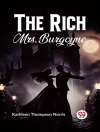In ‘The Magician’s Show Box, and Other Stories, ‘ the reader embarks on a literary journey through an enchanting collection of tales woven with magic, moral allegories, and the whimsical fabric of nineteenth-century American storytelling. The anthology embraces an array of styles, from quietly instructive narratives to fantastical vignettes, echoing the rich tapestry of the era’s literary ethos. The significance of the collection lies in its ability to captivate and enlighten, offering tales that are profound yet accessible, and occasionally tinged with humor and whimsy—all culminating in a crescendo of stories that illuminate inherent truths about human nature. Edited by Lydia Maria Child and showcasing contributions from the likes of Caroline Sturgis Tappan, this anthology is a collaborative effort reflecting culturally significant movements of the time. Child, a staunch abolitionist and advocate for women’s rights, lends her reformist spirit to the collection, while Tappan, known for her transcendental inclinations, adds depth with her metaphysical musings. The collective voices represent the convergence of transcendentalism, morality, and social critique, offering readers insights into the shared American consciousness and the burgeoning literary movements of the nineteenth century. ‘The Magician’s Show Box, and Other Stories’ provides readers a rare opportunity to traverse a multifaceted landscape of nineteenth-century thought and imagination. This collection serves not just as an anthology but as a lens through which to explore varied perspectives and dialogues of its time. Whether seeking the educational benefits afforded by these historical narratives, or simply desiring to engage with diverse storytelling traditions, readers will find themselves drawn into a splendid dialogue that bridges the past with the present.
Sobre el autor
Lydia Maria Child was a prolific American author, abolitionist, and advocate for women’s rights born on February 11, 1802, in Medford, Massachusetts. An intellectual force of the nineteenth century, her literary contributions include not only children’s literature but also domestic manuals, historical biographies, and incisive antislavery writings. Child’s pen harnessed the art of storytelling to both entertain and educate, exemplified by her collection ‘The Magician’s Show Box, and Other Stories’ (1856), a series of enchanting tales that captured the imagination of young readers while subtly imparting moral lessons.
Her influential works ‘An Appeal in Favor of that Class of Americans Called Africans’ (1833) and ‘The Mother’s Book’ (1831) showcase her range as a writer and her commitment to societal reform. Child was known for her accessible, yet vibrant prose style, which allowed her to address complex sociopolitical issues with clarity and passion, earning her a significant place in American literature. Her legacy extends beyond her literary achievements; she is celebrated as a pioneering figure in the movements for abolition and women’s rights. Child passed away on October 20, 1880, leaving behind an indelible mark on American letters and progressive thought.












